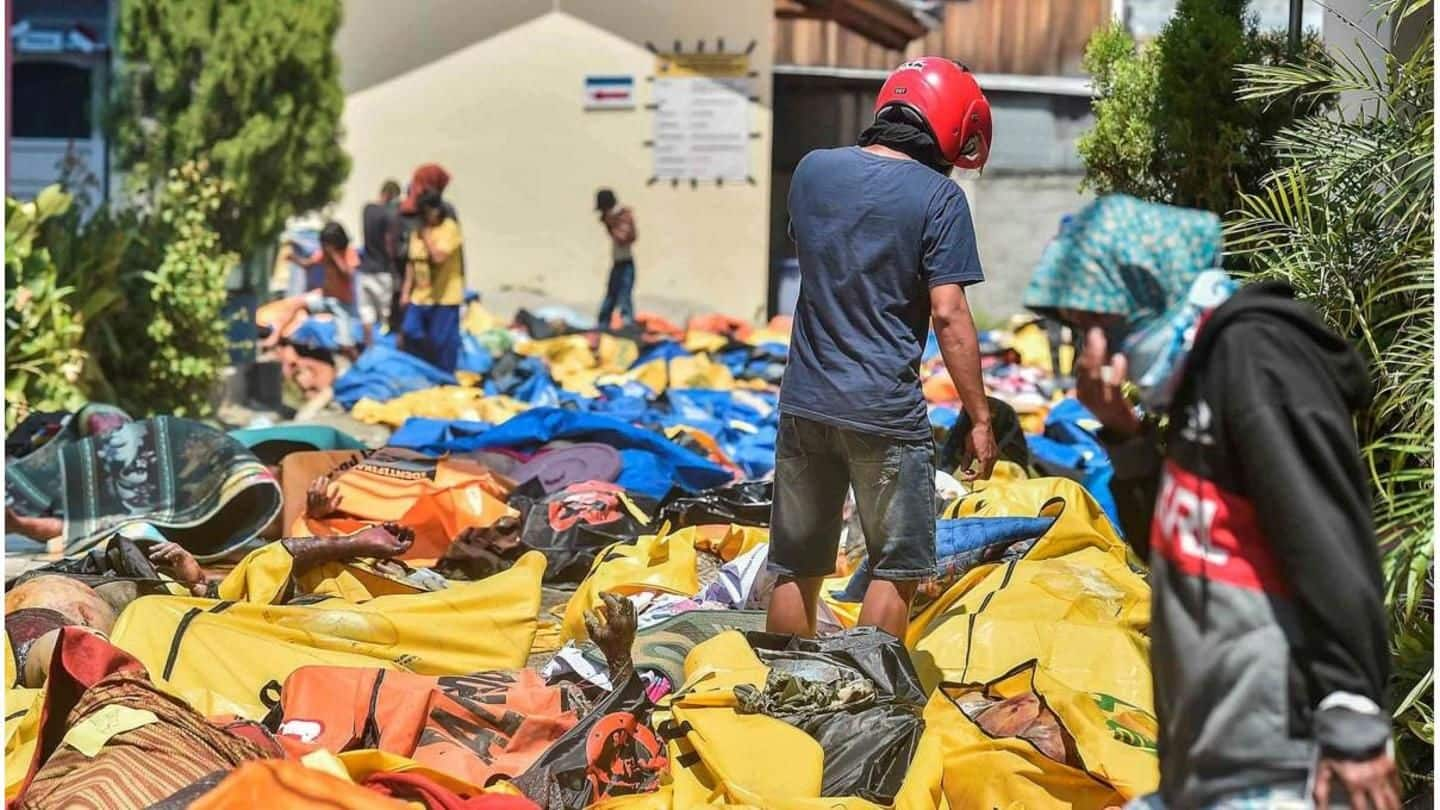
Indonesia quake-tsunami: Mass burials to begin as toll tops 800
What's the story
Mass graves were being readied today for hundreds of victims of an Indonesian quake-tsunami as authorities battled to stave off diseases and reach desperate people still trapped under shattered buildings. With the death toll already at over 830 and expected to rise further on the devastated island of Sulawesi, there were growing questions about why an early tsunami-warning system hadn't been working for years.
Details
Magnitude of earthquake that hit Palu was 7.5
The strong 7.5-magnitude quake struck Friday, toppling buildings and sending walls of seawater crashing into Palu, a city of about 350,000. Exhausted survivors scoured make-shift morgues for loved ones, and authorities struggled to dig out the living or assess the scale of the devastation in more remote regions beyond Palu. Grim warnings indicated that the eventual toll could reach thousands.
Death toll
Disaster agency says casualties will keep increasing
"The casualties will keep increasing," said National Disaster Agency Spokesman Sutopo Purwo Nugroho. Rescuers raced against the clock and lack of equipment to save those still trapped in the rubble, with up to 60 people feared to be underneath one 80-room hotel, named Roa-Roa, alone. Two survivors have already been rescued, the agency said, adding there could still be more alive.
Information
Survivors loot shops for food, water; police looked on
Meanwhile, desperate survivors turned to looting shops for basics like food, water, and fuel as police looked on, unwilling or unable to intervene. The disaster agency said a tsunami-warning system, which might have saved lives, hadn't worked for 6 years due to lack of money.
Efforts
President urges 'day-and-night' rescue efforts; agency says 'not enough'
Indonesia's President Joko Widodo visited the region yesterday, urging a "day and night" effort to save all those who can be saved. But Nugroho indicated sheer power of will may not be enough. "Communication is limited, heavy machinery is limited... it's not enough for the numbers of buildings that collapsed," he said. The situation in outlying areas was even less clear.
Warning
Death toll could cross thousands: Indonesia's Vice President
The country's Vice-President Jusuf Kalla said the final death toll in the more remote regions could be in "thousands" since many places have still not been accessed. Indonesia's Metro TV yesterday broadcast aerial footage from a coastal community in Donggala, close to the quake's epicenter. Some waterfront homes appeared crushed but a resident said most people fled to higher ground after the quake.
Damage
Quake-tsunami in Palu has done unimaginable damage
Satellite imagery provided by regional relief teams showed severe damage at some of the area's major ports, with large ships tossed on land, quays and bridges trashed, and shipping containers thrown around. A double-arched yellow bridge had collapsed, its ribs twisted as cars bobbed in the water below. A key access road had been badly damaged and was partially blocked by landslides.
Quote
Aid agencies, authorities struggling to reach Donggala: NGO Director
UK-based NGO Save The Children's Program Director Tom Howells said access was a "huge issue" hampering relief efforts. "Aid agencies and local authorities are struggling to reach several communities around Donggala, where we're expecting major damage and potential large-scale loss of life," he added.
'Ring of Fire'
Indonesia is one of the world's most disaster-prone nations
The initial quake, which has even surprised scientists, struck as evening prayers were about to begin in the world's biggest Muslim majority country on the holiest day of the week. Indonesia is one of the world's most disaster-prone nations. The South Asian country lies on the Pacific "Ring of Fire", where tectonic plates collide and many of the world's volcanic eruptions and earthquakes occur.